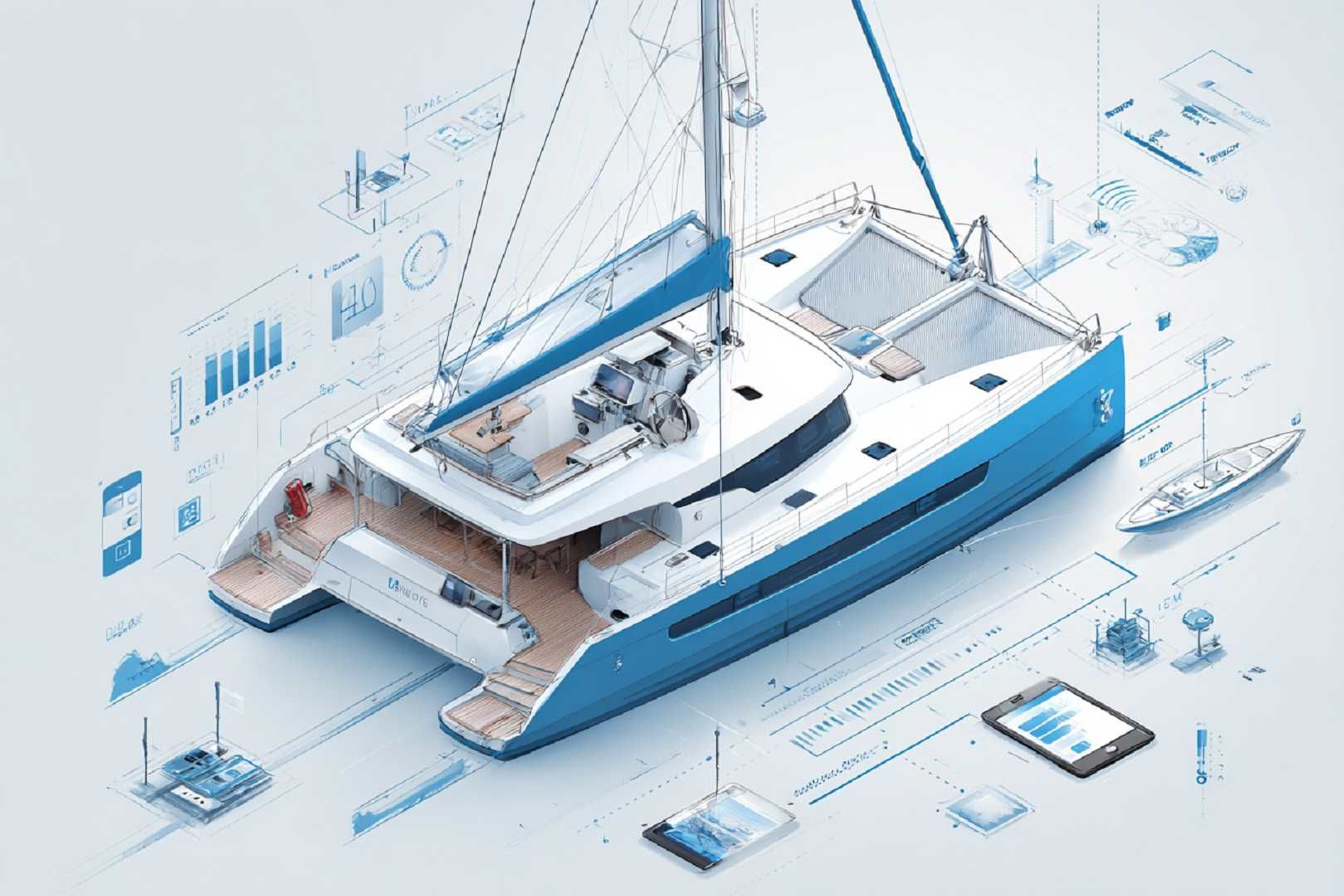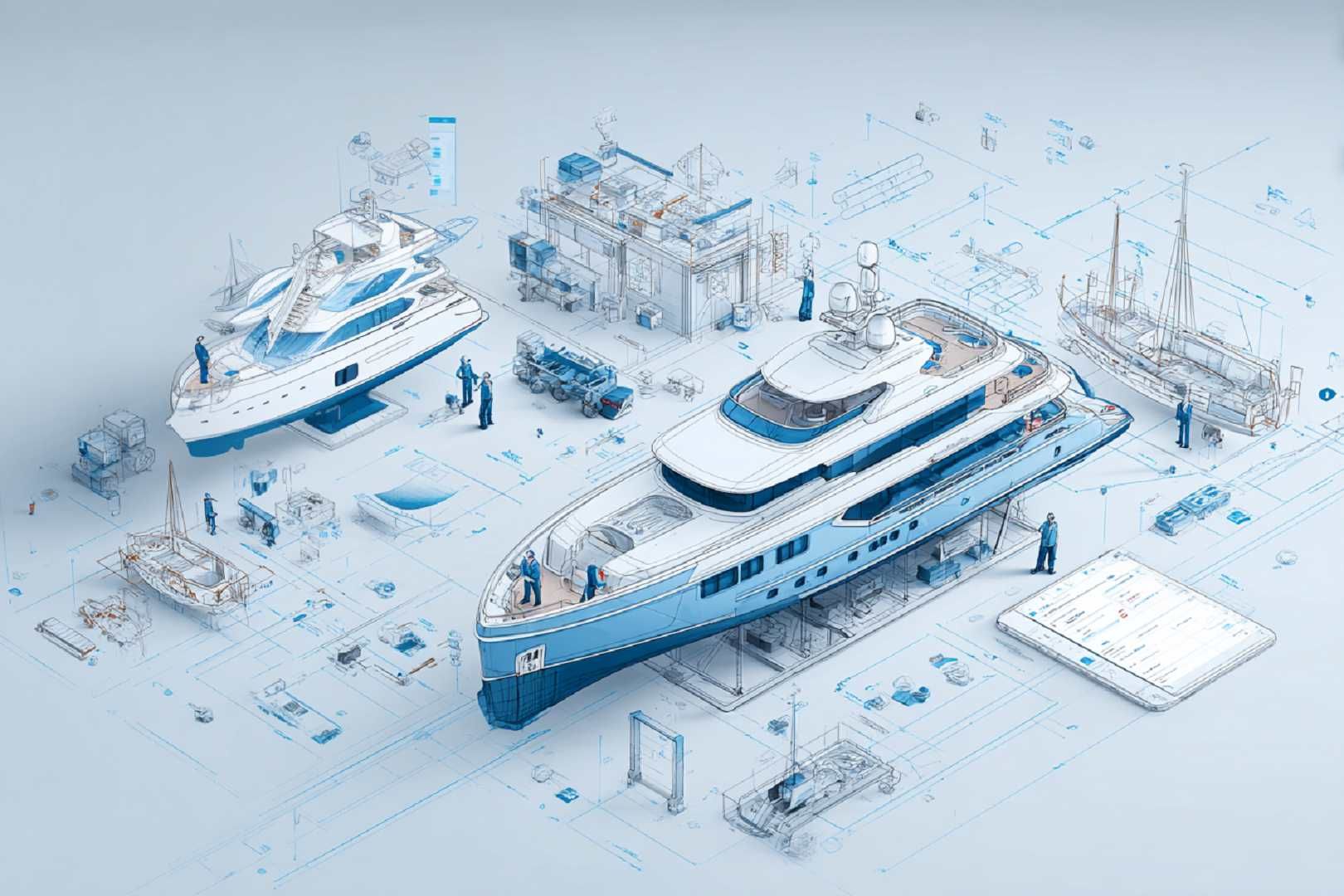2025 Recreational Boats & Yachts Industry News

Renewable Energy Revolution
The recreational marine industry is experiencing a significant shift toward sustainable propulsion systems. The leisure boat market, valued at USD 41.6 billion in 2025, is projected to grow at a CAGR of 5.3% to USD 65.9 billion by 2034, driven largely by environmental considerations.
Solar and Electric Propulsion: Solar-electric hybrid boats are gaining substantial traction, with manufacturers focusing on solar energy integration, hybrid propulsion systems, and hydrogen fuel cells. The Monaco Energy Boat Challenge 2025 showcased cutting-edge developments in solar, electric, hydrogen, and even green methanol propulsion, demonstrating the industry's commitment to sustainable alternatives.
Hybrid Systems Dominance: Hybrid yachts, which combine internal combustion engines with electric motors that utilize energy stored in batteries, are becoming the standard for luxury vessels. This technology offers the flexibility of traditional propulsion while significantly reducing environmental impact.
Digitalization and Smart Technology
The industry is embracing comprehensive digital transformation with AI-powered navigation systems and IoT-driven yacht management. Key developments include:
- Maritime digitization market growth from $200.21 billion in 2024 to $220.27 billion in 2025
- IoT integration enabling real-time monitoring of vessel systems
- AI revolutionizing autonomous boat navigation, safety, and logistics
- Smart navigation systems and automated maintenance alerts enhancing boat ownership experience
Recent Building and Construction News
Major Deliveries and Launches: 2025 has seen significant yacht construction milestones:
- Van der Valk's 15m superyacht Lalabe launched at Waalwijk facility in May 2025
- Feadship scheduled to deliver multiple high-profile superyachts in 2025
- Dutch Superyacht Tech Campus in Amsterdam on track to open in October 2025
Advanced Materials: The industry continues advancing with carbon fiber construction and composite materials including Kevlar, glass, and flax for enhanced performance and weight reduction.

2. Major Company Strategic Moves
Leadership Changes and Restructuring
Executive Appointments:
- Heesen Yachts appointed Jeroen van der Meer as Chief Executive Officer, effective September 2025
- Marine Group Boat Works (MGBW) acquired by co-founder Todd Roberts
Financial Restructuring:
- HanseYachts planning restructuring to realign production capacity with current market demand, with investment fund Aurelius planning to exit
- Sunseeker International announced significant reorganization potentially affecting approximately 200 roles
- Vision Marine Technologies completed multi-faceted restructuring in 2025
Acquisitions and Market Consolidation
Strategic Acquisitions:
- Novamarine acquired Tornado Yachts in July 2025 to strengthen position in the high-end yachting market
- Vision Marine Technologies acquired Nautical Ventures Group in June 2025, which had sold over 600 tenders from 2022 to 2024
- Fairline Yachts acquired by Bronzewood Capital, marking a major turning point for the British luxury yacht builder
These moves indicate significant industry consolidation as companies seek to strengthen market positions and optimize operations in response to changing market conditions.

3. Emerging Technology Trends and Maritime Impact
Autonomous and AI-Driven Systems
Navigation Revolution: AI is enhancing navigation, safety, logistics, manufacturing, defense, sustainability, and regulatory compliance in autonomous boats. The U.S. marine navigation systems market is expected to grow from $14.1 billion in 2024 to $14.69 billion by 2025, driven by autonomous navigation innovations.
Smart Boat Integration: Increased adoption of IoT technologies is enabling real-time monitoring of vessel systems, while automated systems for navigation, cargo handling, and maintenance become increasingly prevalent.
Alternative Fuel Technologies
Hydrogen Fuel Cells: Hydrogen technology is emerging as a game-changer, with developments including:
- Liquid hydrogen fuel cells cooled to -253°C in advanced yacht designs
- The 2025 TU Delft Hydro Motion Team designed a hydrofoiling boat powered by liquified hydrogen
- Hydrogen engines and eco materials featured prominently at Monaco Energy Challenge 2025
Sustainable Materials: The industry is adopting eco-friendly materials and carbon fiber construction to reduce environmental impact while maintaining performance standards.
Digital Transformation Impact
Industry-Wide Digitalization: The maritime sector is experiencing comprehensive digital transformation with smart shipyards, IoT, and AI integration. This includes:
- Software-defined future with smart navigation systems and automated maintenance alerts
- AI, robotics, IoT, and 5G revolutionizing sea travel by boosting efficiency, safety, comfort, and sustainable maritime operations
Market Implications
These technological advances are driving increased accessibility through electric and hybrid propulsion, smart boating technologies, and subscription-based access models. The convergence of sustainability requirements, digital innovation, and autonomous capabilities is fundamentally reshaping the recreational marine industry, positioning it for significant growth and transformation throughout 2025 and beyond.
The industry's focus on environmental sustainability, combined with advanced digitalization and autonomous capabilities, indicates a mature sector adapting to global environmental concerns while leveraging cutting-edge technology to enhance user experience and operational efficiency.